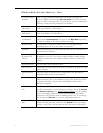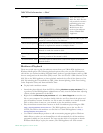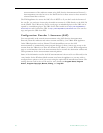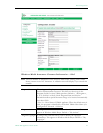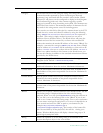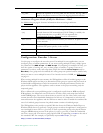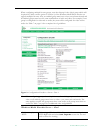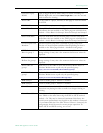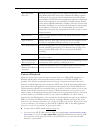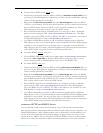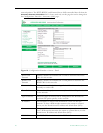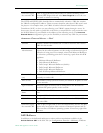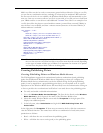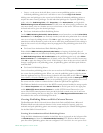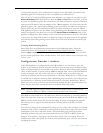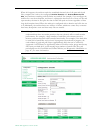
44 © 2008 VBrick Systems, Inc.
Unicast Playback
There are several ways to play the unicast streams from your VBrick WM Appliance on
Windows Media player. You should first decide whether to use HTTP or RTSPU for
playback. This decision is primarily based on the type of network connection that exists
between your WM Appliance and your players. HTTP uses TCP/IP networking which may
work better when your appliance and your players are separated by a firewall. RTSPU uses
UDP networking which has less network latency so it may be your best choice if you are on a
reliable LAN and are interested in low latency. VBrick recommends you run tests at your
target bit rates to determine which protocol works best in your network situation. (Of course
you may decide to use HTTP for some of your viewers and RTSPU for others which is
supported by the WM Appliance.) You should also decide whether you want to use Windows
Media .asx features like Program Name, Author, Copyright, Banner, and Log URL. If you
want to use .asx features, you will use an .asx file or a URL to an .asx file. If you do not want
to use .asx features, you would use a direct HTTP or RTSPU URL to the WM Appliance.
Note that .asx files are not available for group-specific URLs.
T To play back an HTTP stream without using .asx:
• You can use the HTTP URL shown in IWS (for example http://vbrickipaddress:8080/
vbrickvideo1
). You can use File > Open URL in Windows Media Player to play the URL.
You can create a web page with a link to the HTTP URL or you can enter the URL
directly in your browser.
Max. Bandwidth
(bits/sec)
Maximum amount of data that the VBrick will generate at any time
using RTSP and HTTP. The total is calculated by adding together
the data in all the video and audio streams that have been started
using RTSP or HTTP. When this maximum is reached, no additional
players will be allowed to use the RTSP or HTTP method. Default
for the allowed RTSP bandwidth is 20 Mbps. This may be increased
(maximum 100 Mbps) but overall system performance may degrade
as this number is increased. It is recommended that if the max
bandwidth is increased, the configuration should be tested to assure
proper operation.
Time To Live Number of hops (between routers) for which an IP packet is valid
on the network.
Type Of Service RTSPU only. The TOS (Type Of Service) can be configured in the
IP header to establish SAP packet priority in the network.
Max. RTP Packet Size When choosing packet size, special attention must be paid to the
network capability and topology. The allowed range is 1000–1472
bytes per packet. RTP packet size is only relevant to RTSPU
streaming.
Resource Name Title used as part of the RTSP and HTTP location name or URL for
the video or audio.
HTTP Estimated Bit
Rate for all groups
Estimated maximum bit rate for an HTTP stream including network
overhead that will be pulled by a Microsoft server.
RTSP UDP
Estimated Bit Rate for
all groups
Estimated maximum bit rate for an RTSP UDP stream including
network overhead that will be pulled by a Microsoft server.



